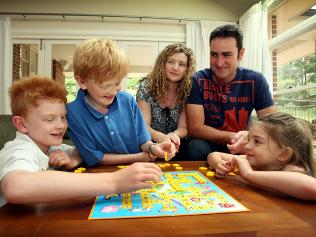Its no secret that all children do not all learn the same way. For children dealing with the challenges of learning disabilities — what we call “Alternative Learners” — this statement is doubly true. While some kids fair better in group learning environments, others are more visual learners, and many benefit greatly from hands-on experience. For parents of children diagnosed with dyslexia, it is important to embrace and explore different approaches to learning in order to find methods that work well for their unique children.
Below, we’ve provided parents with some simple and fun activities for helping kids with dyslexia practice reading and writing skills outside the classroom, helping boost vocabulary and nurture an interest in some of the non-academic applications of reading and writing.
Activities for Helping Kids with Dyslexia:
1.) Encourage your child to keep a diary. Sometimes one the most intimidating aspects of writing is the notion of having to share it with others, especially if you lack confidence in the area. Children diagnosed with dyslexia may be more reluctant to share their writing with others, so a private diary serves as a safe outlet for them to express themselves using the written word. You can buy your child a lock-and-key diary to keep by the bed, or a digital diary to a smartphone or tablet. Our favorite is Private Journal, which locks away content using a passcode only your child will know.
2.) Help your child start a blog. Blogging is a great way to get kids to enhance their writing skills. While keeping a diary is great way to motive kids to for get into a schedule of daily writing habits, publishing one’s writing to a blog demands a bit more refinement and finesse. Services such a Tumblr and Blogger make the process of setting up a blog easy. Best of all, content created can be shared with family and friends, opening up the the opportunity to loved one to offer support and positive feedback.
[cjphs_content_placeholder id=”73597″ random=”no” ]3.) Host a Family Game Night. Studies show that families who play together, stay together. So, consider setting aside one night a week to play board games together as a family. Word-based board games like Scrabble, Upwords, Boggle all incorporate basic phonetic skills for children with dyslexia, and the inclusion of parental guidance means more opportunities for learning should kids encounter unfamiliar words or difficulties with spelling.
4.) Get competitive and keep score. Download interactive word games to your families tablets and smartphones. Link up within the game and begin playing each other competitively. Keep a list of everyone’s high scores, and encourage your kids to try to outdo the tops performers. Great games like Ruzzle, Burning Fingers and Words With Friends are perfect for practicing skills such as spelling and typing, and give kids a fun way to practice said skills at home.
5.) Make story time tech-time. We all know that reading to our children is greatly beneficial. But with the advances in e-books, audiobooks and interactive reading apps, parents have more options than ever to keep their kids interested in reading. For children dealing with dyslexia, the added benefits these apps provide can be greatly beneficial. Some will help children sound out words, others will read out loud while highlighting the text. SImply hearing words read out loud properly models good pronunciation and cadence, which can aid in the improvement of reading fluency. Recommended apps to consider using include Blio, ReadMe Stories and PlayTales.





We are grandparents with an 11 yr. old grandson with deslexia and anxiety. His grandfather is a very intense person. What activities are fun for him that does not include extreme structure.
I am a grandmother of an 11 yr old grandson. We are outdoor people and indoor people. I need something to hold his interest in both situations.